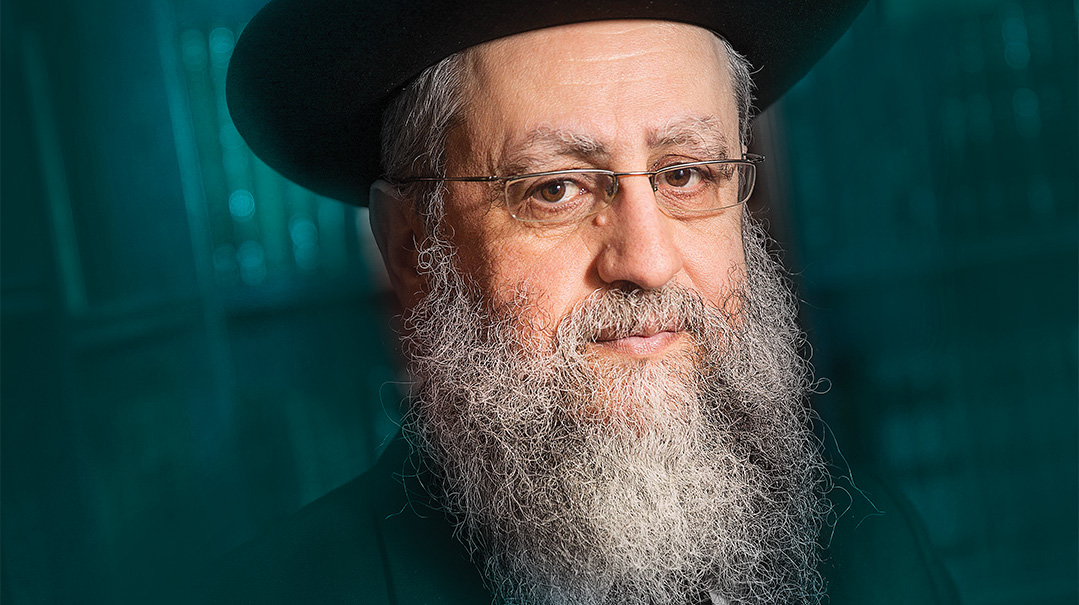The Next Link

Rav David Yosef channels his father’s spirit in the battle for Israel’s halachic identity

Photos: Elchanan Kotler, Chazaq, Flash90, Ronen Kedem
One Shabbos, when Rav David Yosef was a young boy, he went for a walk with his father Rav Ovadiah along Jerusalem’s Rechov Bar Ilan. Today’s religious neighborhood was mostly secular back then, and it wasn’t long before a taxi drew up alongside, its driver rolling down the window.
“I don’t know my way around here,” he called out. “If I carry on driving, where will I end up?”
Without missing a beat, Rav Ovadiah’s young son replied: “In Gehinnom.”
The cutting response drew an appreciative laugh from some bystanders, but despite his sense of humor, the Sephardic Chief Rabbi wasn’t amused.
“Why did you say that?” he upbraided his son. “Do you think that he’ll keep Shabbat because of your comment? Hafuch! Now, he’s even less likely to keep anything. He’ll hate Shabbat!”
Decades after the event, Rav David Yosef hasn’t forgotten the tongue-lashing. “Abba grew up among secular Jews, and he believed in reaching out by being pleasant to them, never by confrontation. His method worked, because so many chilonim who lived around us changed because of him.”
Yet Rav Ovadiah, as those who’d follow his weekly satellite-broadcasted speeches remember, was a straight-shooter, resorting to the colorful Arabic-infused language of his youth to chastise those who’d worked to undermine the Torah way of life. Although the secular media practically made a sport out of mining his speeches for inflammatory expressions, they failed to understand that for his people, it was a language of love — for the farmers and the taxi drivers and the pitzuchim sellers, he was their Abba and their champion.
Of all his siblings, 62-year-old Rav David Yosef — the ninth of 11 children — spent the most time with their father. In daily learning sessions that took place over 15 years, they compiled some of Rav Ovadiah’s most important halachic works.
As his father sparked Israel’s Sephardic teshuvah movement by leading mass rallies, it was this son who was the warmup act, speaking at each location before the chief rabbi arrived. It was also Rav David Yosef who did the most to achieve a central aim of his father’s vision to restore Sephardic rabbinic standing, by founding a high-level kollel that has produced many of the country’s Sephardic dayanim.
Having spent decades following the path that his father set out for him, Rav David Yosef is now attempting to follow him into the office that Rav Ovadiah held dear — the post of Rishon Letzion, or Sephardic chief rabbi. If he succeeds in the elections that are to be held later this year, Rav David will take the reins from his older brother Rav Yitzchak Yosef.
As Israeli society is rent by divisions over the contentious justice system reforms, Rav David thinks that his father would have both supported the pushback against the High Court’s overweening power, and done everything to reach out to the other side.
“I always think to myself: What would Abba have done here?” says Rav David Yosef in an exclusive conversation with Mishpacha. “Although he was on good terms with the politicians of the left, he spoke out very strongly against the High Court and its agenda to secularize Israel. Yet even as we fight to restore the country’s religious status quo, we have to reach out in a pleasant way, and avoid passing laws that can be interpreted as coercion.”
Oops! We could not locate your form.







